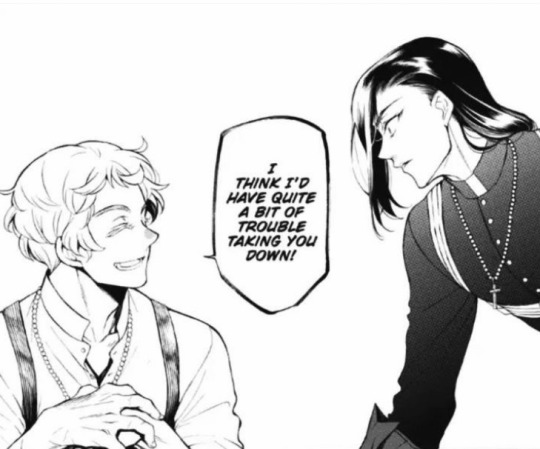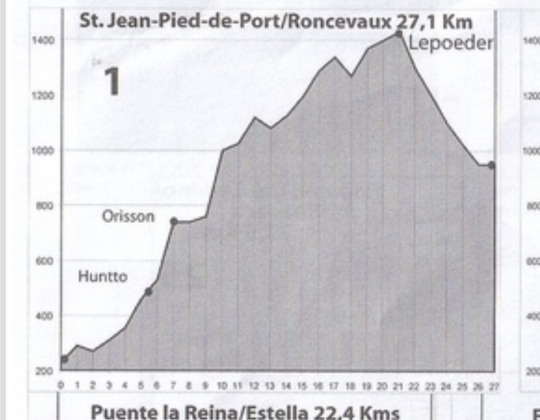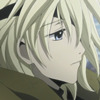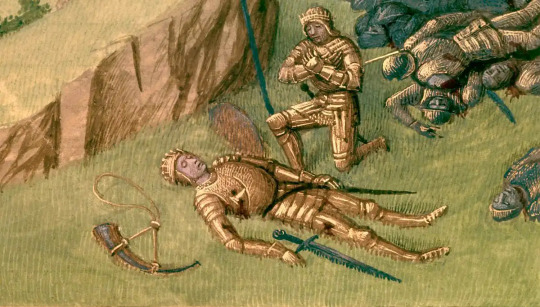#roncevaux pass
Text

Roland at Roncevaux by Jacques Onfroy de Bréville
#song of roland#roland#roncevaux pass#roncesvalles#roncevaux#art#battle#history#medieval#middle ages#chivalry#franks#frankish#europe#european#knights#france#spain#job#jacques onfroy de bréville#chivalric romance#olifant#horn#durendal#mountains#pyrenees#iberian peninsula#charlemagne#old french#germanic
273 notes
·
View notes
Text

I apologize for the obnoxious watermark, 😒🙄 this is a modern art image of Frankish knight, Roland fighting the Saracens at Roncevaux Pass. Artist unknown.
#traditional catholicism#traditional catholic images#traditional catholic modern art#traditional catholic history#traditional catholic crusaders#roland#the song of roland#roncevaux pass#Spotify
1 note
·
View note
Text

“You know... I have never once forgiven Roland for getting us both killed in the Battle of Roncevaux Pass. ‘Oh,but Olivier are you not above holding such grudges?’ you ask. My answer to that is no I am not.”
He says this with a smile clear upon his face but the tone he spoke in showed how angry he really was
#of grace and wisdom;OLIVIER DE VIENNE#an open ended tale;OPEN STARTER#//He cares for his superior deeply but the Battle of Roncevaux Pass is a sore spot for#a reason!
1 note
·
View note
Text
I have a VNC theory about Roland and Olivier. And this time I brought with me RESEARCH.
Their characters are likely based off the 12th century collection of poems: The Song of Roland. Acclaimed to be the oldest known epic of France. The two were Christian knights who served under King Charlamagne’s rule. Olivier was Roland’s best friend, comrade, and stated to be the wise one in their friendship. While Roland was the impulsive, recklessly courageous. Immensely popular too. Sounds familiar?
There is even a saying “A Roland for an Olivier” because it’s believed they were equally matched in the battlefield.

Apparently Roland’s fiancé was Olivier’s sister, Aude. Wonder if that’ll ever come up 👀. So since this is an epic tale with Roland being that immaculate hero, his fatal flow is the devotion he has to himself. As said by Olivier, Roland doesn’t dedicate himself necessarily to God but himself as a follower of God. Some interpret this as pride. So at a certain battle at Roncevaux Pass, they realize their men are outnumbered by the enemy. Olivier advises Roland to blow the horn granted to them, calling for aid from the king.
However, Roland refuses and as you can imagine they quarrel over this. But Olivier, drawn by his loyalty to his friend, reluctantly stays as well. Giving a harrowing speech to their armies to fight with honour and boy, is it bloody. Thousands of men are dying from both sides but then Olivier gets impaled from behind by the enemy.
Even then, his combat skills are impressive to where he slices of his attacker’s head with one blow. Roland rushes to Olivier’s side and they make up from their argument from before. AND OLIVIER DIES IN ROLAND’S ARMS GUYS.
Roland is so distraught that he faints but still needs to continue fighting. But finally before dying himself, he blows the horn calling for the king’s help to finish the rest off. They lost 20,000 soldiers. So why bring this up? Well if mochijun is following in the footsteps of this tale, expect all your favorites to die. They’re so many similarities: their positions being called paladins, Roland’s rashness and impulsivity being his downfall. Olivier’s weakness being Roland I MEAN COME ON.

#anime#the case study of vanitas#les memoires de vanitas#vnc manga#vnc theory#vanitas no carte#roland#olivier#rolivier#roland fortis#all your favorites are dying#jun mochizuki#manga#vampires
192 notes
·
View notes
Text
Man what even was Roncevaux Pass like for Olivier. The guy begs Roland to call for reinforcement like, three times. Did some part of him hope, somewhere, that Roland was right, that he had it handled, that surely he was overreacting? Or did he know all along that this would be his grave? What does it feel like to go into battle knowing you are doomed- and knowing your dearest friend is to blame?
12 notes
·
View notes
Text

The Song of Roland. A French epic telling the tale of Roland's last stand. The Battle of Roncevaux Pass occured on August 15, 778, and saw a large force of Basques ambush a part of Charlemagne's army in Roncevaux Pass, a mountain pass in the Pyrenees on the modern-day border between France and Spain, after Charlemagne's invasion of the Iberian Peninsula. Roland, a Frankish military leader under Charlemagne, and his rearguard were slain in this battle.
#history#art#artwork#songofroland#epic#great epic#frenchepic#ancient epic#world history#the crusades#charlemagne#Roland
3 notes
·
View notes
Text
On medieval history and its influence on literature
Medieval history is a fascinating subject that has captured the imagination of countless writers, artists, and scholars throughout the centuries. Moreover, the medieval period was a time of great turmoil, marked by major events such as the Crusades, the Black Death, and the Hundred Years' War, which continue to influence literature and other forms of art today.
The Crusades, a series of military campaigns launched by Christian powers against Muslim forces, not only shaped the political and cultural landscape of the time but also inspired numerous epic poems, romances, and other literary works. For example, the Chanson de Roland, an epic poem about the Battle of Roncevaux Pass, is one of the most famous works of medieval literature written about that time.
Another major event was the Black Death, a devastating pandemic that swept across Europe in the 14th century, killing millions of people. You can read about this event in Boccaccio's Decameron, for example, which tells the stories of ten people who flee Florence to escape the plague.
The Hundred Years' War, a series of conflicts fought between England and France from the 14th to the 15th century, inspired numerous literary works, including Shakespeare's Henry V, which dramatizes the Battle of Agincourt, one of the most famous battles of the war.
The medieval period was also a time of great intellectual and artistic achievements, with the development of Gothic architecture, the rise of universities, and the flourishing of poetry, music, and art. Many of these achievements are reflected in medieval literature, which often deals with themes of morality, religion, and courtly love.
The complex political and cultural landscape of that time, as well as the major events that marked the Middle Ages, continue to shape the way we view the world and our place in it.
6 notes
·
View notes
Text
Okay, doing a small bit of reading on Charlemagne in Iberia, and the battle of Roncevaux Pass, I do get why the Song of Roland refers to them as Saracens and not Basque.
3 notes
·
View notes
Note
Hello girls, do you know if the Basques from Ipparalde were drafted into Napoleon's army?If so, where can I read the lists of these soldiers and their fate?
Kaixo, anon!
Interesting question. We don't know if there's any list or who was drafted, but we do know Iparralde went through hell in times of Napoleon.
EH being located where it is - between France and Spain - meant that battles between the French and the Spaniards were constant: we suffered battles in Heleta, Donostia, Bidasoa, Roncevaux, Iantzi, Amaiur, Etxalar, Vitoria, etc.
Every big house was requisitioned to house the officials and their men.
All the animals of the army were fed in the prairies, but also in the wheat and corn fields, sentencing locals to hunger. The soldiers would empty every house of food, beverages, clothes and money, but also of doors and furniture to feed their campfires. They also burned down several houses just for fun, leaving Basque people in complete poverty. In certain towns of Southern Lapurdi mortality rate doubled after the passing of Napoleon's army. Many Basques were left to starve to death.
Basque women were raped and forced to sew their uniforms and flags, and overall become the soldiers' servants.
Another nightmare Basque people had to endure due to France and Spain.
Sources: 1, 2, 3
#euskal herria#basque country#pays basque#pais vasco#euskadi#iparralde#history#france#spain#napoleon#anons
14 notes
·
View notes
Text
Trying to decide my options for my first few days in Europe for my Camino.
My flight into Paris lands at 8am. The soonest trains to St. Jean Pied-de-Port (hereafter known as SJPDP) leaves at noon and arrives at 6:30pm.
The daily mass at the church in SJPDP (at the end of which pilgrims are given a blessing) is at 6:00pm. (At least one website by a local cheerfully points out “It’s in Euskara/Basque, so while it’s lovely you won’t understand a word of it.”) I would really like to attend.
While in SJPDP I also need to: buy trekking poles (…can’t bring them as a carry-on on my flight, and I’m not checking anything), buy a couple days’ worth of snacks, and stop at the pilgrims’ office for my first stamp and to find out the weather conditions in the mountain pass.
The night before I leave, I really want to stay in a hostel called Beilari, which only allows stays of one night. They serve a vegetarian dinner and breakfast.
The walk to Roncesvalles (aka Roncevaux) is the longest, hardest day of most people’s Camino—because you literally cross the Pyrenees. Look:

Orisson is a small hostel about 8km in, and some people stay there a night to make the walk over the Pyrenees a tiny bit shorter and make their first day an easy one.
Options are as follows:
One: Take train from Paris straight to SJPDP, leave the next morning, walk all the way to Roncesvalles
Pros: The train is nice—pilgrims often meet on the train. Hit the ground running, so to speak. Cheapest.
Cons: Miss pilgrim’s mass in SJPDP. Start my Camino jet-lagged.
Two: Take train from Paris to SJPDP, stay two nights in SJPDP, walk to Roncesvalles
Pros: Can be well-rested, take my time doing errands around SJPDP, attend pilgrims’ mass
Cons: Will have to stay in two different places in SJPDP …honestly that’s it I think lol
Three: Spend a day in Paris, take train to SJPDP the next day, walk to Roncesvalles the day after that
Pros: Train! Do tourism in Paris. There’s a vegan French restaurant in Paris with moderate prices (for Paris) that sounds amazing
Cons: Paris is EXPENSIVE and I will be jet-lagged. I will be walking around Paris with a full hiking backpack and wearing hiking clothes. …and I’ll still miss the Pilgrims’ mass in SJPDP
Three: Train from Paris to SJPDP first day, then only walk to Orisson
Pros: Train! Can do my errands in SJPDP the next morning, and get a small start on my walk
Cons: I honestly don’t hear great things about Orisson. Plus: Still no pilgrims’ mass
Four: Take plane from Paris to Biarritz, then bus/shuttle to SJPDP and start the next day
Pros: Get to attend pilgrims’ mass and (probably) run errands. The plane from Paris to Biarritz is disturbingly cheap. The shuttle/bus supposedly runs frequently
Cons: Start my Camino jet-lagged. Ugh another PLANE. I will be so tired of flying. And then a BUS through MOUNTAINS. How do you say “motion sickness” in French lol
Okay. Now that I’ve typed it up…option two sounds the most appealing. That first night I can probably even spend the money for a private room somewhere. A lot of places aren’t taking reservations until February. But yeah: one night in a private room to SLEEP, do my errands, check into Beilari, pilgrims’ mass, dinner with other pilgrims, and a healthy breakfast before starting out with a bunch of other people to tackle the Pyrenees and stop at the big hostel in Roncesvalles!
2 notes
·
View notes
Text

Roland at Roncesvalles by Odilon Redon
#roland#veillantif#roncevaux#roncesvalles#roncevaux pass#art#odilon redon#symbolism#symbolist#history#europe#european#france#spain#medieval#middle ages#song of roland#knights#franks#frankish#germanic#charlemagne#pyrenees#chivalric romance#chivalry#knight#paladin#durendal
103 notes
·
View notes
Text
Ganelon / ガヌロン
The Ganelon bandits (JP: ガヌロン山賊; rōmaji: ganuron sanzoku) are a troublesome group of marauders near the borders of Sacae and Bern in Fire Emblem: The Blazing Blade. They get their name from the knight Ganelon from the Matter of France. A Frankish baron or earl depending on the tale, he served as a knight under his brother-in-law, King Charlemagne. Jealous of his stepson, the ever-popular Paladin Roland, upon being assigned by his child to messenger duty to the Saracens—enemy of the Franks—Ganelon began hatching up a plot. He allied with the Spanish knight Blancandrin and ambushed the French forces in what is known as the Battle of Roncevaux Pass. Together, they slaughter the rearguard of Charlemagne's army, including many important figures like Roland, Olivier, and Turpin. As punishment for his treachery, Ganelon is torn apart, limb by limb, by four fiery horses.
We don't get any grand betrayals from the Ganelon Bandits; the closest thing would be Dorcas leaving them to protect his wife. But much like the Taliver Bandits, the name is likely meant to relate to the needless, selfish killing the group participates in.
1 note
·
View note
Text

Olivier fights not only for his king, his people and fellow paladins but for his dear sister Aude. Aude really means the world to him and his only regret as he died was leaving her behind after the Battle of Roncevaux Pass claimed his life. It’s because of this that he takes it upon himself to be a brother figure to not only the Master of Chaldea but allied Servants as well
2 notes
·
View notes
Text
The Song of Roland

Painting of Charlemagne mourning the death of Roland by French artist Jean Fouquet (1420-1481).
The Song of Roland, a French chanson de geste, is an epic poem composed in the 11th century about Roland, a heroic Frankish leader in the court of Charlemagne who fought in the Battle of Roncevaux Pass in 778 AD against the pagan Basques. The Song of Roland encapsulates a medieval "collective memory," soon to be remembered as a major historical conflict between Christians and Muslims -- something that still heavily resonates with contemporary political discourse. In the Song of Roland, the epic recounts the heroic service of Charlemagne's loyal and chivalrous knights in their fight against the Basques and Muslim Saracens in Iberia. Roland, the fighter and Charlemagne's nephew, died a martyr as angels brought his soul to heaven. The Song of Roland ties in with Iberian history and the history of the Reconquista; it addresses myriad themes such as martyrdom, collective memory, chivalry, knightly honor, conquest, barbarism, and the portrayal of "the other." While the original author of the Song of Roland is unknown, it is believed that Turold, a Norman poet, composed the epic.
Sources, aside from class sources on Sakai:
0 notes
Note
Hm, do you have any particular feelings on Fate/'s take on Roland?

Went from "well he certainly exist" to "OK FINE ROLAND HAS SOME RIGHTS" when I read Traum. I'm sure you'll know what moment I'm referring to when it drops in NA, but aside from this big fucking spoiler, I do like that he 1) has the potential to be furioso and I mean that in the most mythologically accurate way possible, and 2) that he is fucking haunted by his failure at Roncevaux Pass (which is where he died in The Song Of Roland.) When the man gets written by someone who actually read up on some of Charlemagne's myths bottom text.
8 notes
·
View notes
Text
Events 8.15 (before 1900)
636 – Arab–Byzantine wars: The Battle of Yarmouk between the Byzantine Empire and the Rashidun Caliphate begins.
717 – Arab–Byzantine wars: Maslama ibn Abd al-Malik begins the Second Arab Siege of Constantinople, which will last for nearly a year.
718 – Arab–Byzantine wars: Raising of the Second Arab Siege of Constantinople.
747 – Carloman, mayor of the palace of Austrasia, renounces his position as majordomo and retires to a monastery near Rome. His brother, Pepin the Short, becomes the sole ruler (de facto) of the Frankish Kingdom.
778 – The Battle of Roncevaux Pass takes place between the army of Charlemagne and a Basque army.
805 – Noble Erchana of Dahauua grants the Bavarian town of Dachau to the Diocese of Freising
927 – The Saracens conquer and destroy Taranto.
982 – Holy Roman Emperor Otto II is defeated by the Saracens in the Battle of Capo Colonna, in Calabria.
1018 – Byzantine general Eustathios Daphnomeles blinds and captures Ibatzes of Bulgaria by a ruse, thereby ending Bulgarian resistance against Emperor Basil II's conquest of Bulgaria.
1038 – King Stephen I, the first king of Hungary, dies; his nephew, Peter Orseolo, succeeds him.
1057 – King Macbeth is killed at the Battle of Lumphanan by the forces of Máel Coluim mac Donnchada.
1070 – The Pavian-born Benedictine Lanfranc is appointed as the new Archbishop of Canterbury in England.
1096 – Starting date of the First Crusade as set by Pope Urban II.
1185 – The cave city of Vardzia is consecrated by Queen Tamar of Georgia.
1224 – The Livonian Brothers of the Sword, a Catholic military order, occupy Tarbatu (today Tartu) as part of the Livonian Crusade.
1237 – Spanish Reconquista: The Battle of the Puig between the Moorish forces of Taifa of Valencia against the Kingdom of Aragon culminates in an Aragonese victory.
1248 – The foundation stone of Cologne Cathedral, built to house the relics of the Three Wise Men, is laid. (Construction is eventually completed in 1880.)
1261 – Michael VIII Palaiologos is crowned as the first Byzantine emperor in fifty-seven years.
1281 – Mongol invasion of Japan: The Mongolian fleet of Kublai Khan is destroyed by a "divine wind" for the second time in the Battle of Kōan.
1430 – Francesco Sforza, lord of Milan, conquers Lucca.
1461 – The Empire of Trebizond surrenders to the forces of Sultan Mehmed II. This is regarded by some historians as the real end of the Byzantine Empire. Emperor David is exiled and later murdered.
1483 – Pope Sixtus IV consecrates the Sistine Chapel.
1511 – Afonso de Albuquerque of Portugal conquers Malacca, the capital of the Malacca Sultanate.
1517 – Seven Portuguese armed vessels led by Fernão Pires de Andrade meet Chinese officials at the Pearl River estuary.
1519 – Panama City, Panama is founded.
1537 – Asunción, Paraguay is founded.
1540 – Arequipa, Peru is founded.
1549 – Jesuit priest Francis Xavier comes ashore at Kagoshima (Traditional Japanese date: 22 July 1549).
1592 – Imjin War: At the Battle of Hansan Island, the Korean Navy, led by Yi Sun-sin, Yi Eok-gi, and Won Gyun, decisively defeats the Japanese Navy, led by Wakisaka Yasuharu.
1599 – Nine Years' War: Battle of Curlew Pass: Irish forces led by Hugh Roe O'Donnell successfully ambush English forces, led by Sir Conyers Clifford, sent to relieve Collooney Castle.
1695 – French forces end the bombardment of Brussels.
1760 – Seven Years' War: Battle of Liegnitz: Frederick the Great's victory over the Austrians under Ernst Gideon von Laudon.
1843 – Tivoli Gardens, one of the oldest still intact amusement parks in the world, opens in Copenhagen, Denmark.
1863 – The Anglo-Satsuma War begins between the Satsuma Domain of Japan and the United Kingdom (Traditional Japanese date: July 2, 1863).
1893 – Ibadan area becomes a British Protectorate after a treaty signed by Fijabi, the Baale of Ibadan with the British acting Governor of Lagos, George C. Denton.
1899 – Fratton Park football ground in Portsmouth, England is officially first opened.
0 notes